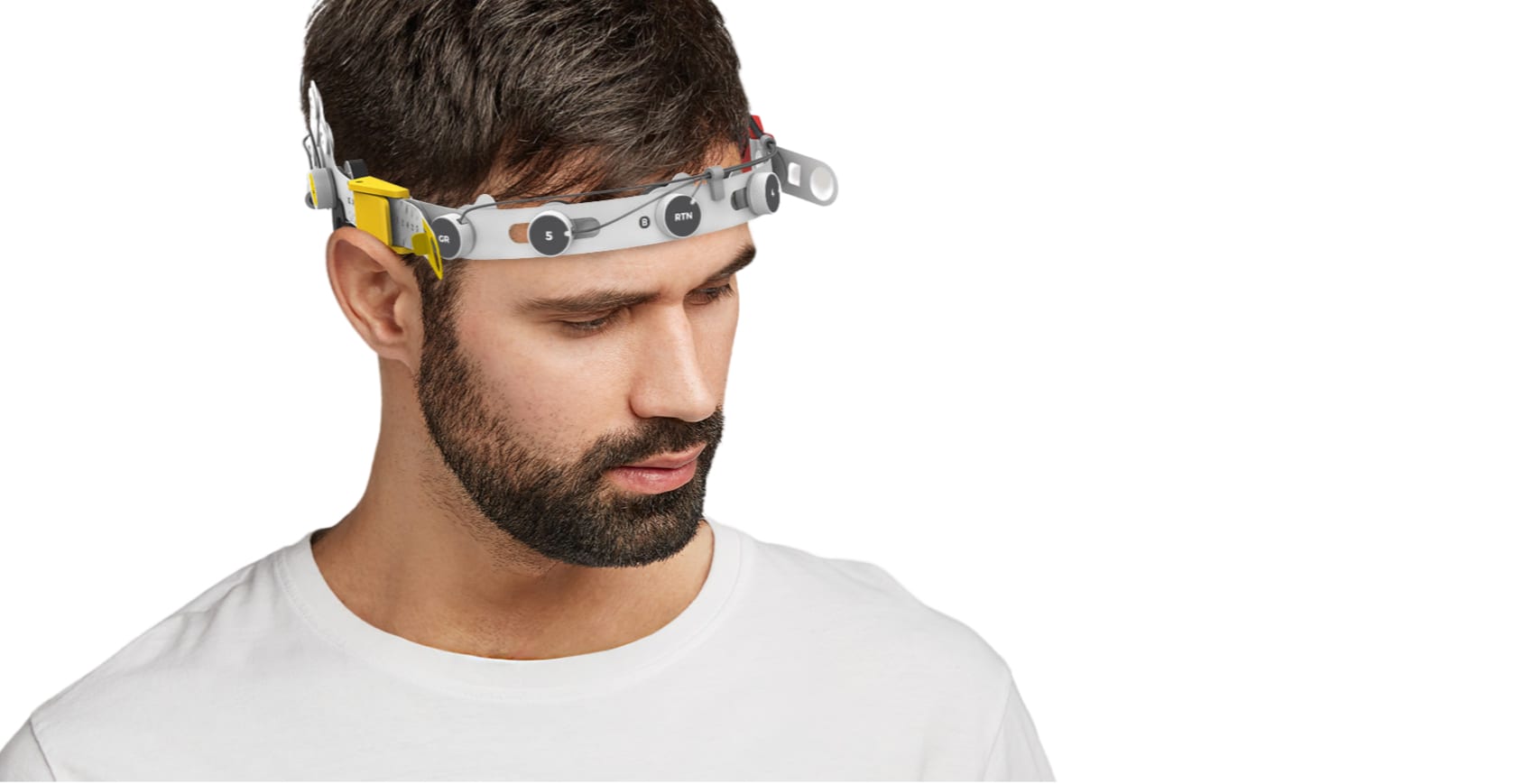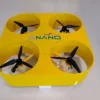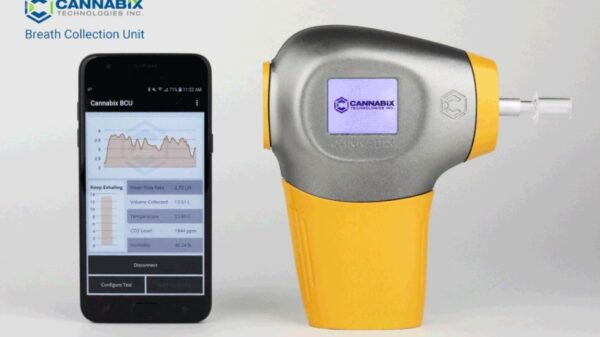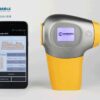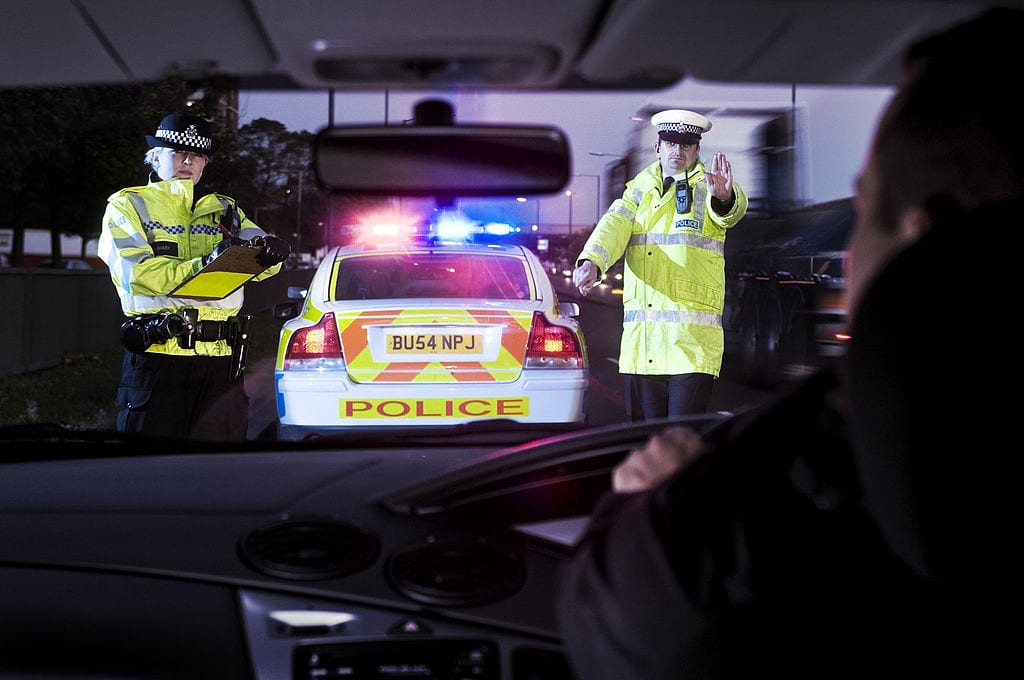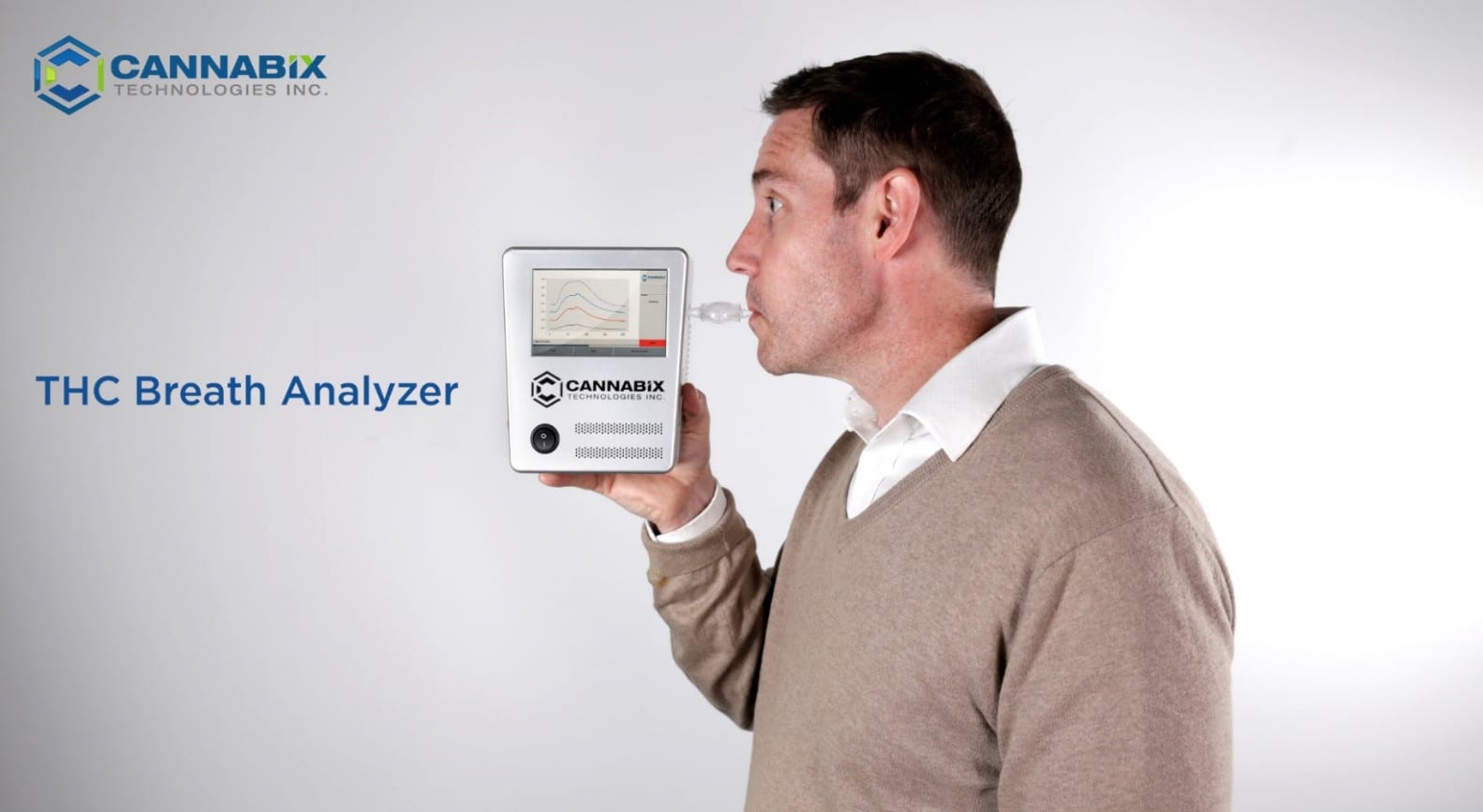You’ve probably heard about breathalyzers and blood tests that detect THC, but what about a brainwave-measuring headset?
Canadian neurotechnology company Zentrela Inc. has developed the Cognalyzer, a device that measures the brain’s electrical activity to tell if a person is high.
After completing independent research on the efficacy of the device, the firm is being contracted by licensed producers to generate data on the psychoactive effects of various cannabis products.
While not designed to be used at the roadside, the headset could assist workplaces and law enforcement departments in providing faster, fairer and more accurate in-office sobriety tests, according to Zentrela.

Zentrela founder and CEO Israel Gasperin has a background in computer engineering and project management. Submitted photo
Combining brainwave with saliva analysis, employers and law enforcement can now determine if a person is testing positive for THC in a saliva test because they’re feeling high, and not due to salivary residue from who knows when, Zentrela founder and CEO Israel Gasperin explains.
The headset is an electroencephalogram (EEG) that collects brainwave information and correlates it with a THC-induced psychoactive state. According to recent studies, the headset is approximately 85 per cent accurate in measuring the psychoactive effects of THC.
“We will build a huge database of cannabis effect or brainwave data that allows the scientific team led by Dr. Dan Bosnyak to develop these proprietary algorithms that basically transform brainwaves into a psychoactive effect level,” Gasperin tells Mugglehead in a video call.
When it was founded in 2015, the Hamilton, Ontario-based company was working on developing a device to detect driver fatigue. After noticing a need for cannabis-impairment detecting devices, they pitched the Cognalyzer to the Ontario Centre of Innovation and the Ontario Brain Institute. The pitch got the firm $1.1 million in funding to continue with the project and run human trials.
To avoid bias in the results, Zentrela hired contract research organization KGK Science to test the device.
A recent study published in the journal Advances in Therapy assessed the accuracy, sensitivity and specificity levels of the Cognalyzer to identify brainwave alterations following cannabis inhalation. Results showed that the headset is highly accurate in detecting the psychoactive effects of THC.
“Combining Cognalyzer results with oral fluid concentrations reduced false-positive oral fluid test results by up to 49 per cent,” reads the study.
Zentrela’s chief scientific officer Dan Bosnyak says the latest research focused on accurately detecting if someone’s high, but his company is in the process of preparing another study that will look at refining the headset’s ability to tell how high a person is.
“And that is actually where the magic really is: in the ability to not only say, ‘You are under the effects,’ but rather have how much exactly are those effects,” Bosnyak says.
Read more: Cannabix vies to be first to capitalize on difficult cannabis impairment market
Read more: Stoners drive less impaired than doobie newbies
Read more: Landmark study first to show low-dose CBD doesn’t impair driving
Using brainwave data to map the effects of cannabis
Zentrela has started to work with licensed producers, offering cannabis consumer research using the Cognalyzer by correlating brainwaves with psychoactive effects.
Gasperin says that by building a database of product effect insights, those could later be used for informational purposes while maintaining regulatory compliance.

The Cognalyzer uses electroencephalography (EEG) to objectively characterize brainwave alterations associated with cannabis use. Submitted photo
“We just started the first-of-its-kind observational study with cannabis-infused beverages that unexperienced or infrequent consumers bring, and we use our neurotechnology to map the complete experience,” Gasperin adds.
Zentrela’s medium-to-long-term goal is to help law enforcement and employers to improve safety, while protecting consumers from inaccurate information.
By conducting more research, Gasperin says producers, retailers and policy makers will be able to make more accurate educational and promotional material.
In future, Zentrela will look for research partners that have driving simulators to correlate a scale of psychoactive effects with the ability to drive safely.
“Once we have more robust scientific literature that demonstrates a more solid relationship of psychoactive effects to impairment then at that stage we will enter to the workplace safety and law enforcement market,” Gasperin said.
Update (2021-5-5 1:30 p.m. PST): This article has been updated with further clarification from Zentrela that initial research on the Cognalyzer has been completed.
Top photo via Zentrela
Follow Natalia Buendia Calvillo on Twitter
natalia@mugglehead.com

